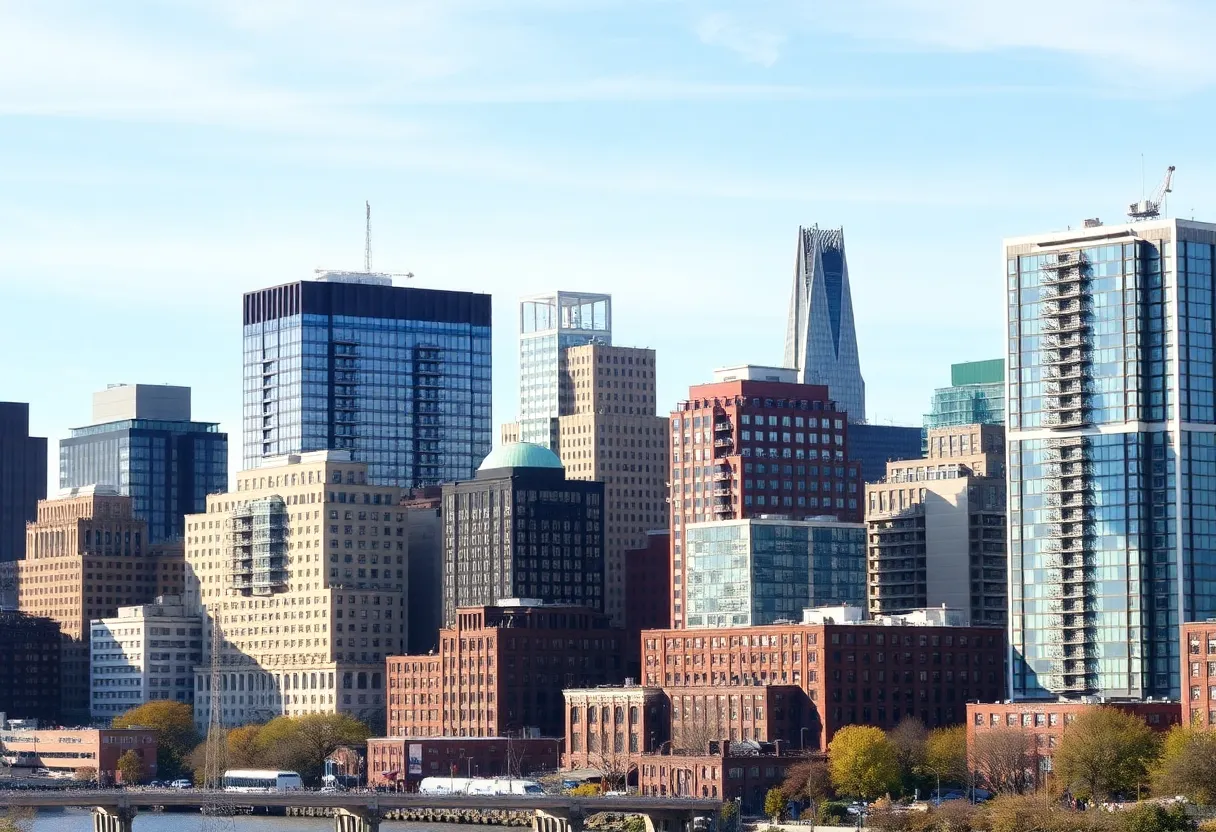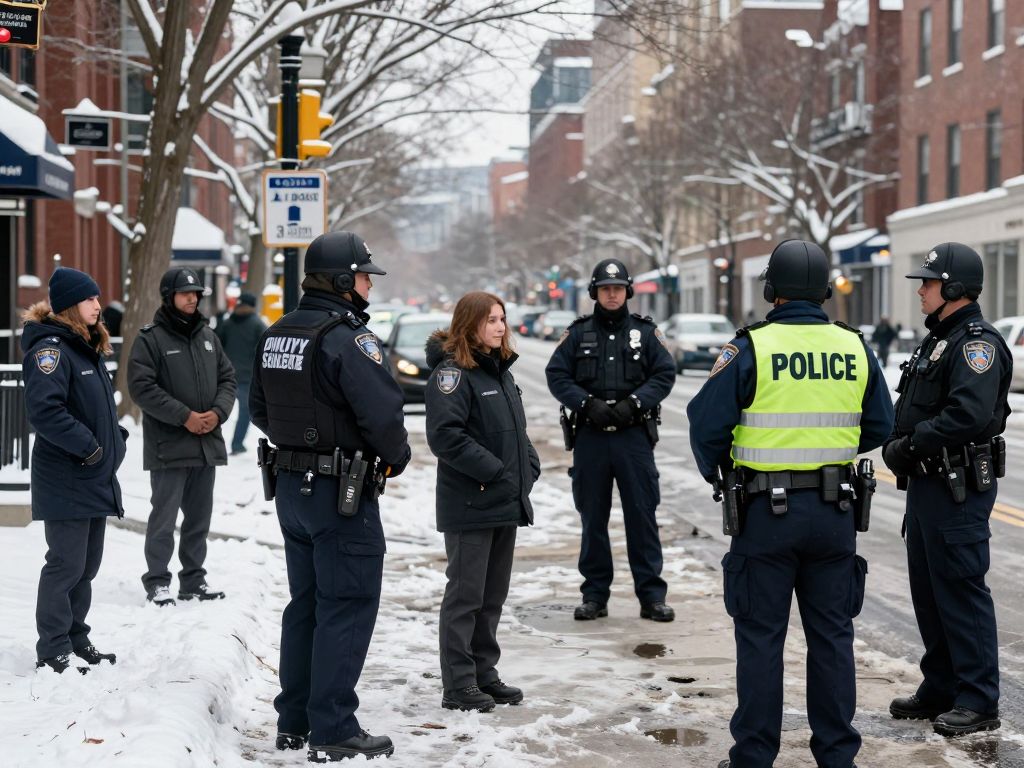Boston, October 25, 2025
News Summary
The Boston Zoning Commission has approved a comprehensive zoning overhaul for Downtown Boston, marking the first significant update in over 30 years. The changes aim to protect historic sites, encourage mixed-use developments, and address post-pandemic shifts in office occupancy. Key elements include new height limits for buildings and a requirement for affordable housing in residential projects. This reform is expected to revitalize Downtown by fostering a vibrant community and supporting local businesses.
Boston — The Boston Zoning Commission approved a comprehensive zoning update for Downtown Boston for the first time in over three decades. The unanimous vote advances a broad overhaul of land-use rules intended to protect historic assets, encourage housing and mixed-use development, and respond to long-term post-pandemic changes in office occupancy and street-level activity.
Key decisions and immediate effects
The update allows residential use throughout Downtown and sets a new requirement that buildings over 200 feet along Washington Street be predominantly residential. The new height limits allow for buildings up to 700 feet in certain areas, including near State Street and Washington Street, and the plan allows for 500-700 foot tall towers in parts of the service-heavy historic downtown area. All residential projects will be required to include 20% affordable housing. City officials confirmed that areas designated for taller buildings will not impede the Boston Common and Public Garden.
The Commission voted unanimously (10-0) to approve the plan, marking the completion of a seven-year effort to modernize downtown zoning rules. The approval followed extensive studies and public engagement conducted under the multi-year initiative known as PLAN: Downtown, which was first launched in 2018 and was relaunched in 2022 to accelerate planning and outreach.
Goals: housing, ground-floor activation, and preservation
The regulations are designed to encourage office-to-residential conversions and to promote housing and mixed-use density that supports street-level businesses. The update eliminates outdated land-use restrictions to foster a wider range of small businesses such as cafés and fitness studios that city planners say will help boost foot traffic in ground-floor retail spaces. Historic preservation is a key component; new rules eliminate barriers to adaptive reuse and ensure protections for Boston Common and the Public Garden.
Public concerns and protections
Groups including Friends of the Public Garden and the Downtown Boston Neighborhood Association raised concerns that taller buildings could cast new shadows on parks and alter the character of historic landmarks. In response, the zoning changes include provisions intended to protect the Boston Common and Public Garden from shadow impacts, and city planners emphasize that tall buildings and green spaces can coexist with proper siting and design controls.
One city official recused himself from the vote because of a conflict with an advocacy group linked to his work. Other stakeholders described the plan as an important recalibration between economic and community needs in a downtown that has seen reduced office occupancy and lower pedestrian volumes since the pandemic.
Implementation and additional policy features
The updated regulations support transit-oriented development and aim to attract new investment while meeting housing needs. Rules enabling office-to-residential conversions are intended to speed changes of use where feasible. The approval package removes some restrictive ground-floor use rules, allowing more flexibility for neighborhood-serving businesses and community uses that planners expect will increase daytime and evening activity.
Officials emphasize that the zoning update builds on years of technical analysis and public engagement and is intended to revitalize Downtown as a more livable, mixed-use community rather than solely a commercial district. Supporters argue the changes will bring safety, vibrancy, and economic support to local businesses by reintroducing residents, visitors, and services to the central city.
Next steps
Following final administrative steps, the new zoning rules will be incorporated into the city’s regulatory code. Developers, property owners, and neighborhood groups will monitor how the new rules affect specific projects, especially proposals that approach newly allowed heights or propose major conversions from office to housing.
FAQ
What did the Boston Zoning Commission approve?
The Boston Zoning Commission approved a comprehensive zoning update for Downtown Boston for the first time in over three decades.
How did the Commission vote?
The Commission voted unanimously (10-0) to approve the plan, marking the completion of a seven-year effort to modernize downtown zoning rules.
What are the new height rules?
The new height limits allow for buildings up to 700 feet in certain areas, including near State Street and Washington Street.
Does the plan allow tall towers in historic areas?
The plan allows for 500-700 foot tall towers in parts of the service-heavy historic downtown area.
What residential and affordability requirements were included?
All residential projects will be required to include 20% affordable housing.
What change applies along Washington Street?
The zoning plan allows for residential use throughout Downtown and requires buildings over 200 feet along Washington Street to be predominantly residential.
How does the plan address historic parks?
Historic preservation is a key component; new rules eliminate barriers to adaptive reuse and ensure protections for Boston Common and the Public Garden.
Quick reference table
| Topic | Detail |
|---|---|
| Approval | Commission voted unanimously (10-0) to approve the plan |
| Scope | Comprehensive zoning update for Downtown Boston (first in over three decades) |
| Plan name / timeline | Built on PLAN: Downtown (launched 2018, relaunched 2022); seven-year effort |
| Height limits | New height limits up to 700 feet in certain areas; 500-700 foot towers allowed in parts of historic downtown |
| Washington Street rule | Buildings over 200 feet along Washington Street required to be predominantly residential |
| Residential requirements | All residential projects will be required to include 20% affordable housing |
| Historic parks | Protections for Boston Common and the Public Garden to limit shadow impacts |
| Ground-floor uses | Eliminates outdated restrictions to allow diverse small businesses and neighborhood services |
| Conversion policy | Enables office-to-residential conversions to address reduced office occupancy |
| Public concerns | Shadow and character impacts raised by community groups; protections included |
Deeper Dive: News & Info About This Topic
HERE Resources
The North Shore Commons Listed for $5.45 Million in Lynn, MA
Planning Commissioners Approve New Boston Crossing Development
John Hancock’s Historic Boston Home Listed for Sale
Mayor Wu Proposes 700-Foot Skyscrapers for Downtown Boston
Downtown Boston Faces Economic Revival Challenges
Boston Experiences Significant Temperature Drop
Boston Experiences End of Heat Wave with Significant Cool Down
Additional Resources
- Boston Real Estate Times
- Wikipedia: Zoning in the United States
- Boston.com
- Google Search: Boston Zoning Commission
- Boston Herald

Author: STAFF HERE BOSTON WRITER
The BOSTON STAFF WRITER represents the experienced team at HEREBoston.com, your go-to source for actionable local news and information in Boston, Suffolk County, and beyond. Specializing in "news you can use," we cover essential topics like product reviews for personal and business needs, local business directories, politics, real estate trends, neighborhood insights, and state news affecting the area—with deep expertise drawn from years of dedicated reporting and strong community input, including local press releases and business updates. We deliver top reporting on high-value events such as Boston Marathon, Head of the Charles Regatta, and Boston Harborfest. Our coverage extends to key organizations like the Greater Boston Chamber of Commerce and Associated Industries of Massachusetts, plus leading businesses in finance, biotech, and insurance that power the local economy such as Fidelity Investments, Biogen, and Liberty Mutual Insurance. As part of the broader HERE network, we provide comprehensive, credible insights into Massachusetts's dynamic landscape.





